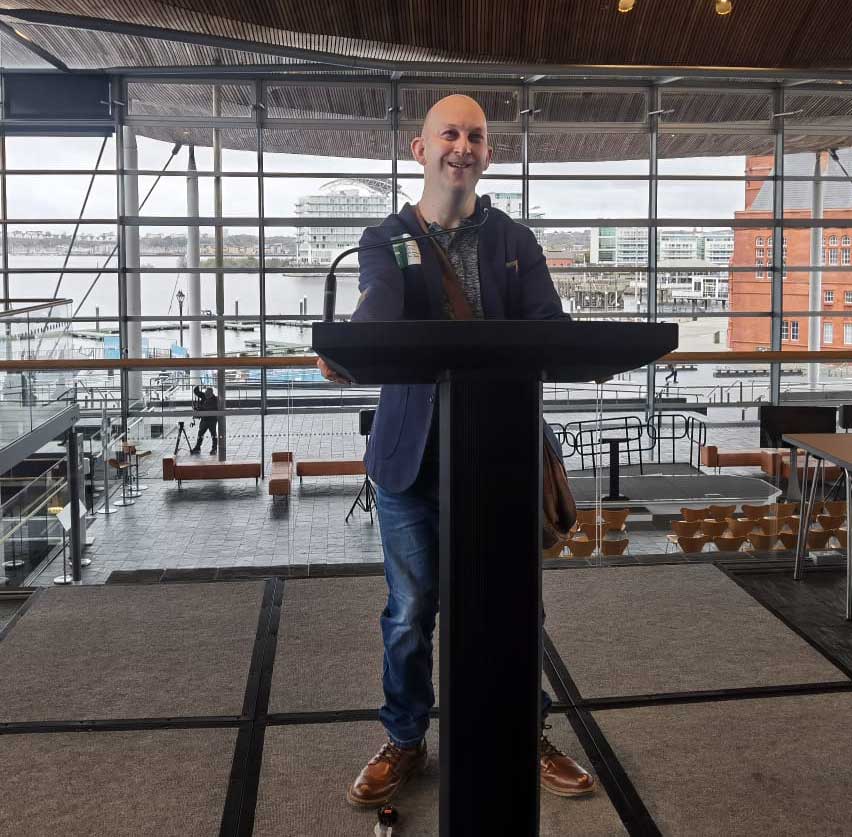For years, I apologised for existing differently, moving slowly, being misunderstood, and holding people up, even for a few seconds. No one ever asked me to say sorry; it became a habit, an instinct formed from years of feeling like I was the inconvenience. It took me a long time to understand what the social model of disability explains so clearly: I am not the problem. My cerebral palsy and speech impairment aren’t barriers, an inaccessible society is, with its stairs instead of ramps, impatience instead of understanding, and systems built for everyone but me.

Living with cerebral palsy and speech impairment makes you more aware of how the world reacts to you. A raised eyebrow when I take a little longer. A sigh in a queue. The awkward glance at my AAC device before I can even get my first words out.
I absorbed the message that disability equals inconvenience. My inner monologue was a loop of:
• Sorry for taking longer.
• Sorry for needing help with this bit.
• Sorry for making you uncomfortable.
I am starting to realise that carrying that is exhausting. It’s not just physical effort; it chips away at your confidence and sense of belonging.
Writing my autobiography and my blogs has begun to help me to face a truth I’d been dodging; I wasn’t fully accepting myself yet.
• Some days, I feel proud and unshakable.
• Other days, one ignorant comment can undo hours of effort and leave me questioning my place in the world, but I remind myself that my value doesn’t shrink because of someone else’s discomfort. Each time I keep speaking up, I reclaim a little more confidence.
I realised that I didn’t create the barriers that make life harder. Society did.
Breaking this habit hasn’t happened overnight. Years of apologising don’t vanish instantly, but I’ve started to notice small changes in how I carry myself. Here’s what’s helping me take back that confidence.
Learning to Live Without Constant Apologies
I’m still working on this. Full self-acceptance is a journey, not a milestone. But I’ve started taking small steps:
I’d love to say I never feel that old instinct to apologise. But I do. Some days, I feel like that young version of me who wanted to blend in, to not be noticed.
The difference now is awareness. I pause before every ‘sorry’ and ask: Do I really need to apologise, or is this just habit?
With each day, I notice the change, even a small step towards progress. I hold my head a little higher. I advocate for myself with less hesitation. I replace guilt with quiet pride, even if I’m not 100% there yet.
Final thought: Living unapologetically with a disability isn’t about being loud or defiant. It’s about recognising your right to exist without shrinking yourself to make others comfortable.
I’m not fully there yet, but every time I choose pride over apology, I take another step towards that freedom and happiness and step out from behind the mask of impostor syndrome and internal ableism.
Remember, accepting your disabilities will take as long as it needs to. It’s okay to be different, accept yourself as you are, and accept others too.
‘I’m learning that my existence isn’t an apology. The world needs to adapt, not me.’